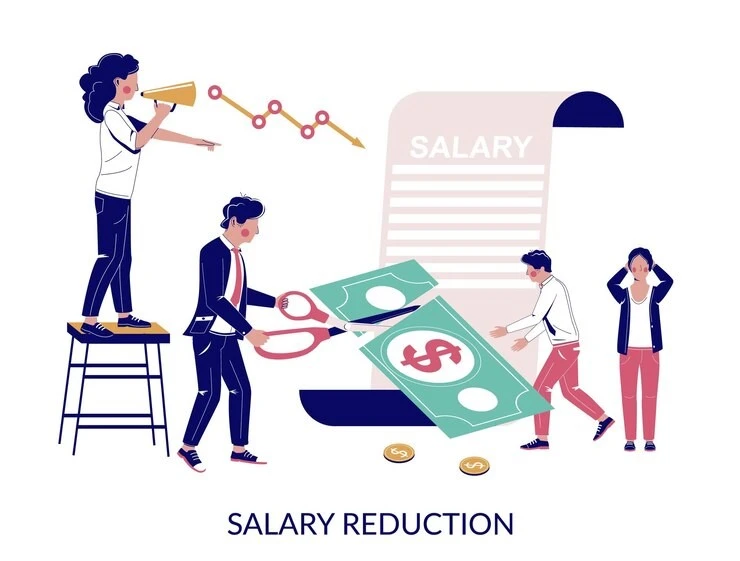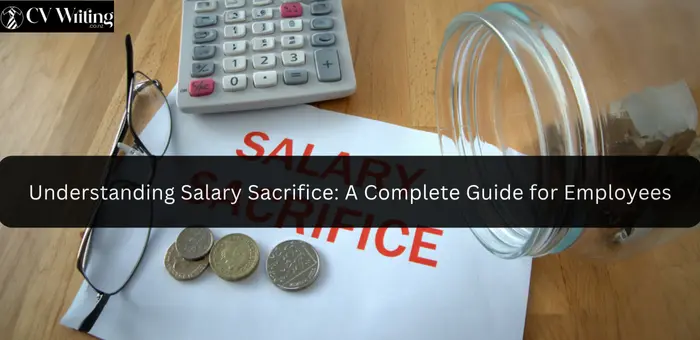Understanding Salary Sacrifice: A Complete Guide for Employees
Robert Walters, a globally recognized specialist professional recruitment consultancy, considers salary sacrifice to be a flexible benefit for employees. This means that staff members must forgo a portion of their pre-tax salaries in exchange for non-cash benefits.
This approach allows employees to access various perks like car leasing, childcare, retirement, and mortgage contributions. Additionally, implementing the policy assists employees in reducing their taxable income, meaning they pay less tax than before.
However, they can still access certain benefits. So, let us dig into this policy and explain it to both the potential and existing employees. This will help them by elevating their financial status over time.

Simplifying the Salary Sacrifice Policy for Employees
The term salary sacrifice does not refer to an action done quite literally. In fact, the name is there for a reason. Yes, the sacrifice is happening, and the base salary amount is being reduced, but that money is only being saved for later, in the form of various funds.
Hence, today’s sacrifices pay off tomorrow, and the employees also get to raise their living standard as a complementary benefit. Now, let us make it more digestible for the potential and existing personnel.
Here’s How Salary Sacrifice Is An Amazing Policy
You must have heard about the resume writing service helping in the smooth hiring process, but have you ever heard of employee awareness programs? Probably not. According to research outcomes, a significant portion of employees are unaware of things like –
- Their legal rights
- Their obligations
- The company policies
- The benefit packages
- Formal HR guidelines
- HR-related procedures.
In the same way, not many know about the salary sacrifice, even when it is very important to know about in the modern world.
Simplest Explanation:
First of all, you can think of this policy as an agreement between the employee and the hiring manager. This is where they agree to receive a reduced gross salary (before tax) so that they may get some exclusive advantages. Consequently, now the individual is legally responsible for much condensed income tax payments. Moving on, below is a quick example for you to understand it fully.
A Detailed Example:
Now, imagine that Sophia is an executive in New Zealand and earns up to $60,000 NZ annually. At the time of hiring, she agreed to sacrifice $10,000 NZ of her base earnings to be paid into her pension. Hence, the employer deducts the established amount from her paycheck every month and directly adds it to her pension account. This reduces the gross salary to $50,000 NZ.
Let’s Have a Look at the Calculations:
- Before the policy implementation:
| Categories | Amounts |
| Gross salary | $60,000 |
| Taxable income | $60,000 |
| Pension contribution | N/A |
| Income tax (30%) | ($18,000) |
| Take Home Pay | $42,000 |
- After the policy implementation:
| Categories | Amounts |
| Gross salary | $50,000 |
| Taxable income | $50,000 |
| Pension contribution | $10,000 |
| Income tax (30%) | ($15,000) |
| Take Home Pay | $35,000 |
| Pension fund boost | $10,000 |
- As of now, the calculations show that the take-home pay has painfully dropped from $42K to $35K. This means a reduction of seven thousand New Zealand dollars. However, Sophia’s pension has grown by $10,000 NZ, which is a bigger good news.
Some Reasons Why Employees Love This Policy
There are plenty of CV maker NZ, but very few guiding professionals in the land educate the employees on benefiting policies like the salary sacrifice one. Anyway, jumping directly to the reasons why people start loving this non-cash benefit, once they understand, is that it helps them save on income tax, enhance their retirement savings, access benefits more cheaply, and avail the tax-efficient perks.
In addition, the employees also get to contribute a larger portion of their salary to their KiwiSaver fund, increasing their retirement savings. This means they don’t just get perks of health insurance and car leasing, but also enhance financial planning. Furthermore, with some salary sacrifice schemes, like Holiday Trading, the employees can avail their annual leaves to the fullest.
Potential Pitfalls That You Might Be Falling Into
The very first downside of a lower gross salary is that your statutory benefits, like maternity pay and mortgage affordability, get reduced too. On the same note, it is important that you get the agreement not just verbally but also in writing to avoid any conflicts later.
All of this should be done in compliance with the HMRC. Moving on, you should realize that the salary sacrifice is not easily reversed unless there is a life event such as marriage or childbirth. So, when finalizing the agreement, think twice.
Common Salary Sacrifice Option in New Zealand
- KiwiSaver
- Electric car lease
- Health insurance
- Technological support
- Gym membership
- Bike for cycling to work
The Frequently Asked Questions of an Employee
Q. What types of non-cash benefits can a person avail?
In such an arrangement, the employee can enjoy pension contributions, childcare vouchers, and car leasing. However, before you say yes or sign any contract, you should consider the consequences.
Q. What are some potential drawbacks of it?
The very first one is that there is no guarantee of a return to the higher salary in the future. On the other hand, there is a possibility that it will have a huge impact on benefits and borrowing potential.
Q. Can the employees easily opt in and out of this arrangement?
According to the expert opinion and observations, the salary sacrifice policy is voluntary to join. No one can ever force you to choose it. In addition, the clauses of the agreement can be altered at the special request of the employees.
Q. How long do these arrangements typically last?
Honestly, it is somewhat like a long-term contract. It usually lasts up to twelve months: a year. However, in case of a sudden life change, such as an addition to the list of family members, the contracts can be altered.
The Summary of Understanding Salary Sacrifice
In simple terms, salary sacrifice means a situation where the employee agrees to take a smaller paycheck (or “sacrifice” part of their salary) in exchange for receiving other benefits. This includes several things, like contributions to a pension or a company car.
This arrangement is known for its tax advantages because you agree to have a smaller paycheck before taxes are taken out. Additionally, instead of the reduced cash, your employer provides you with something other than cash. Hence, no cash but an equivalent amount of assets or delayed advantage.

